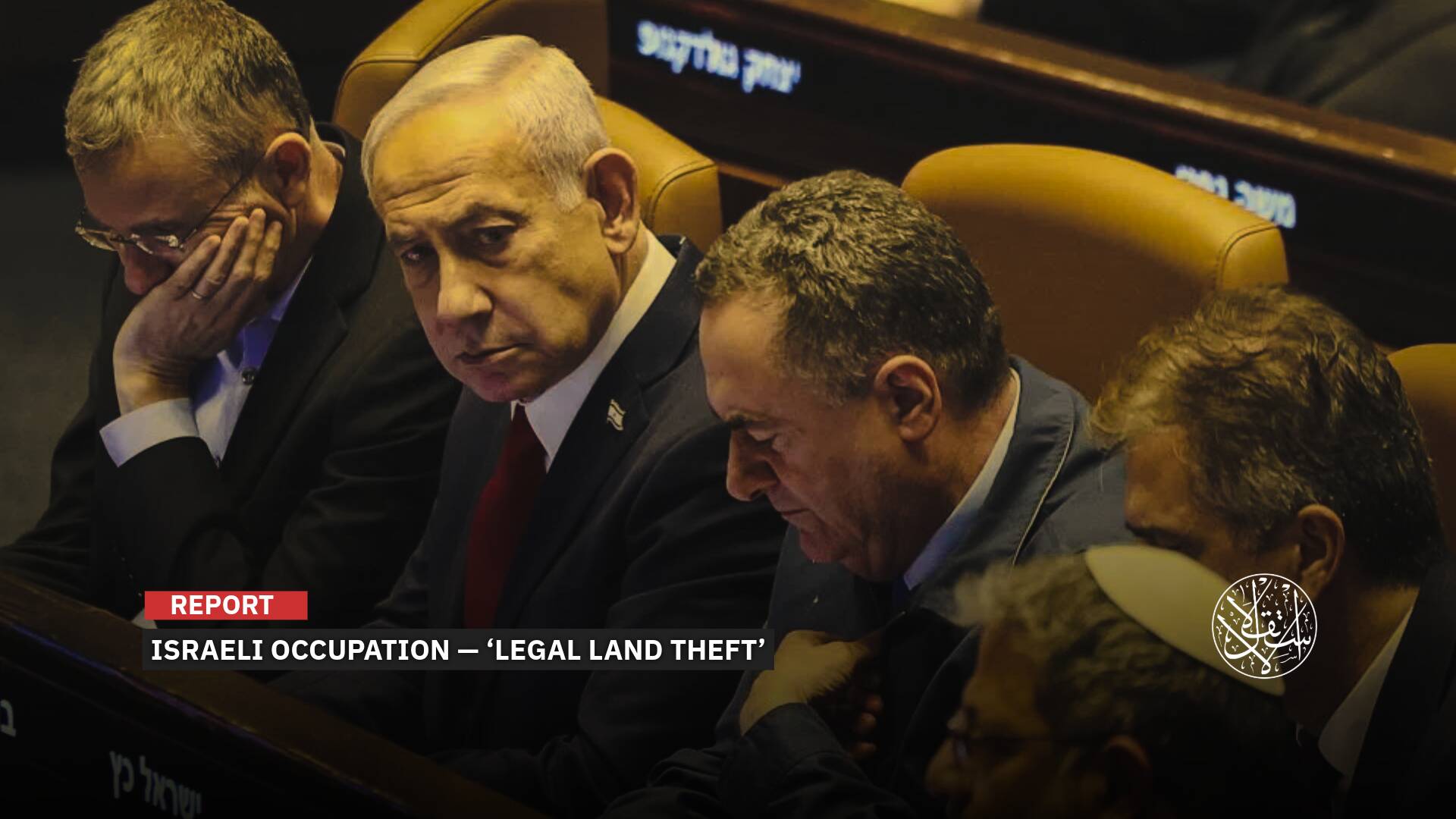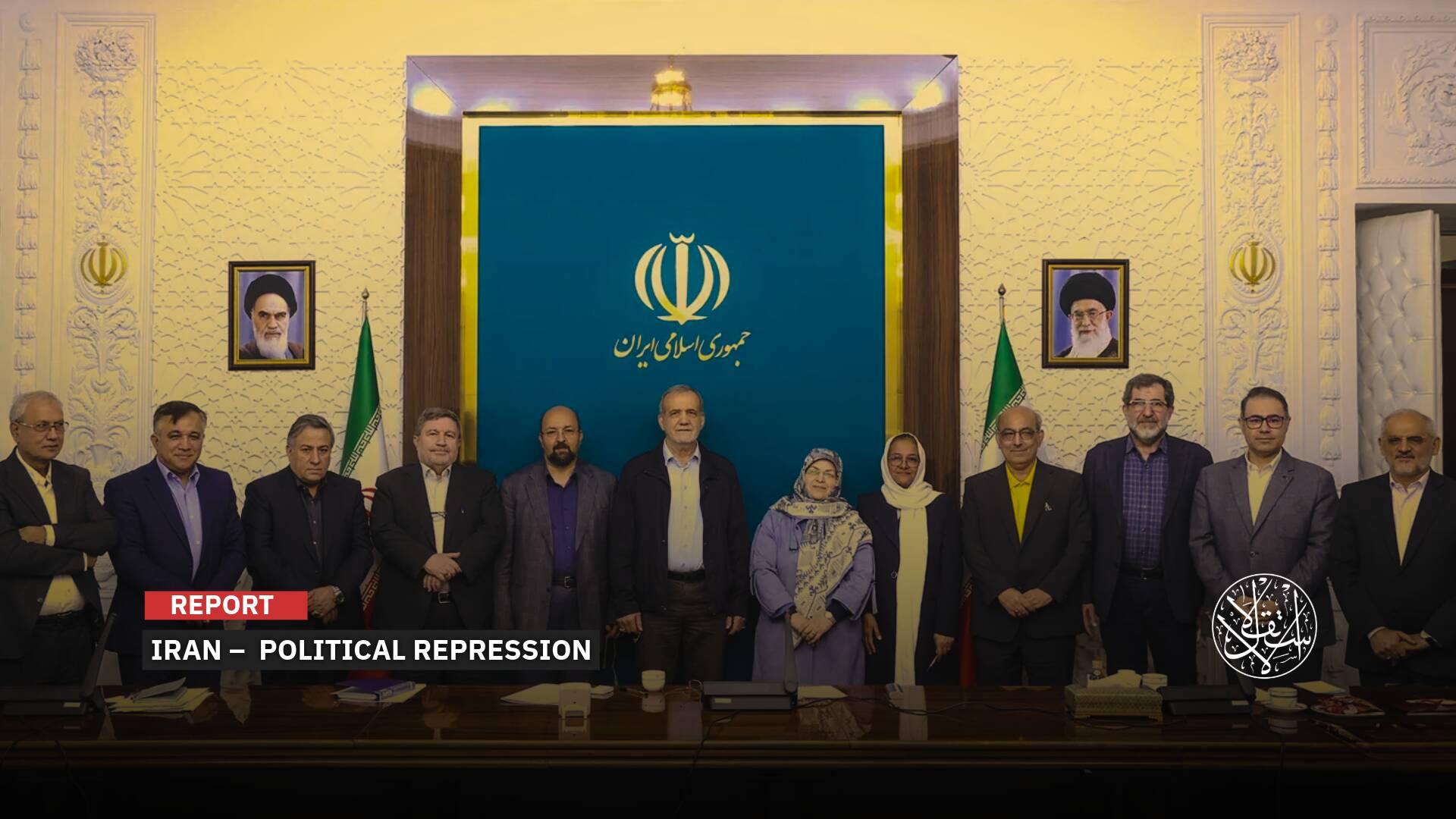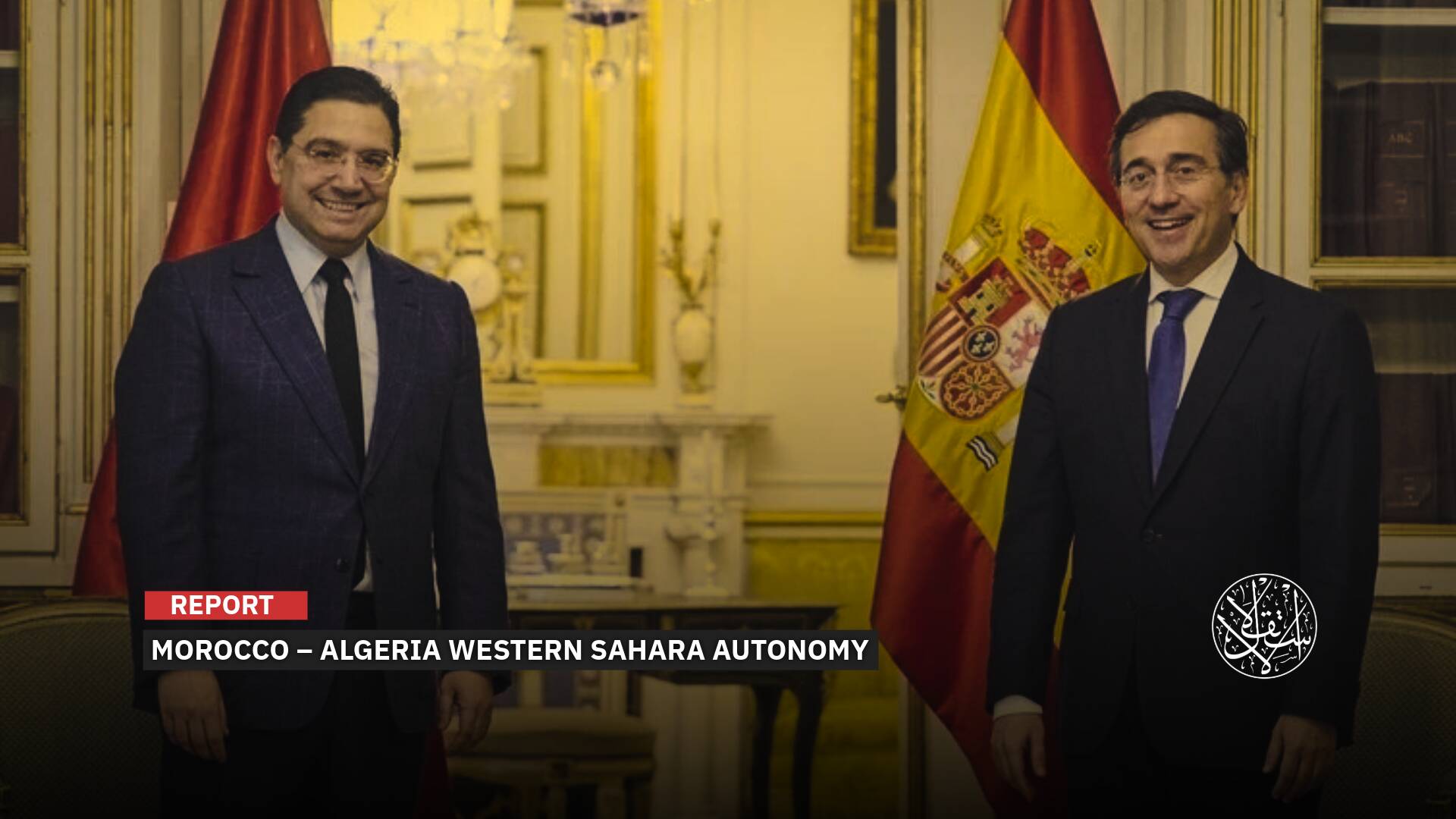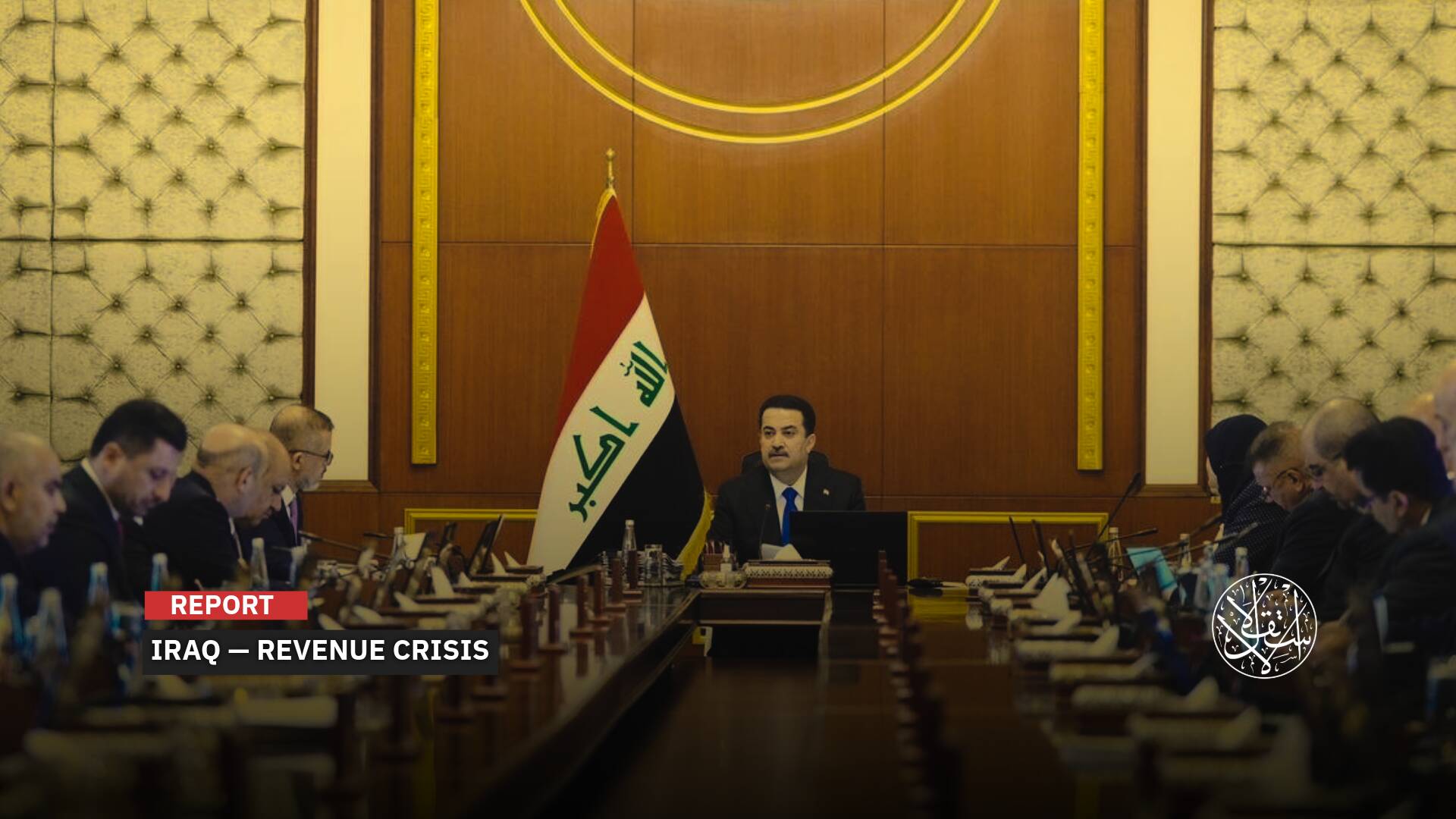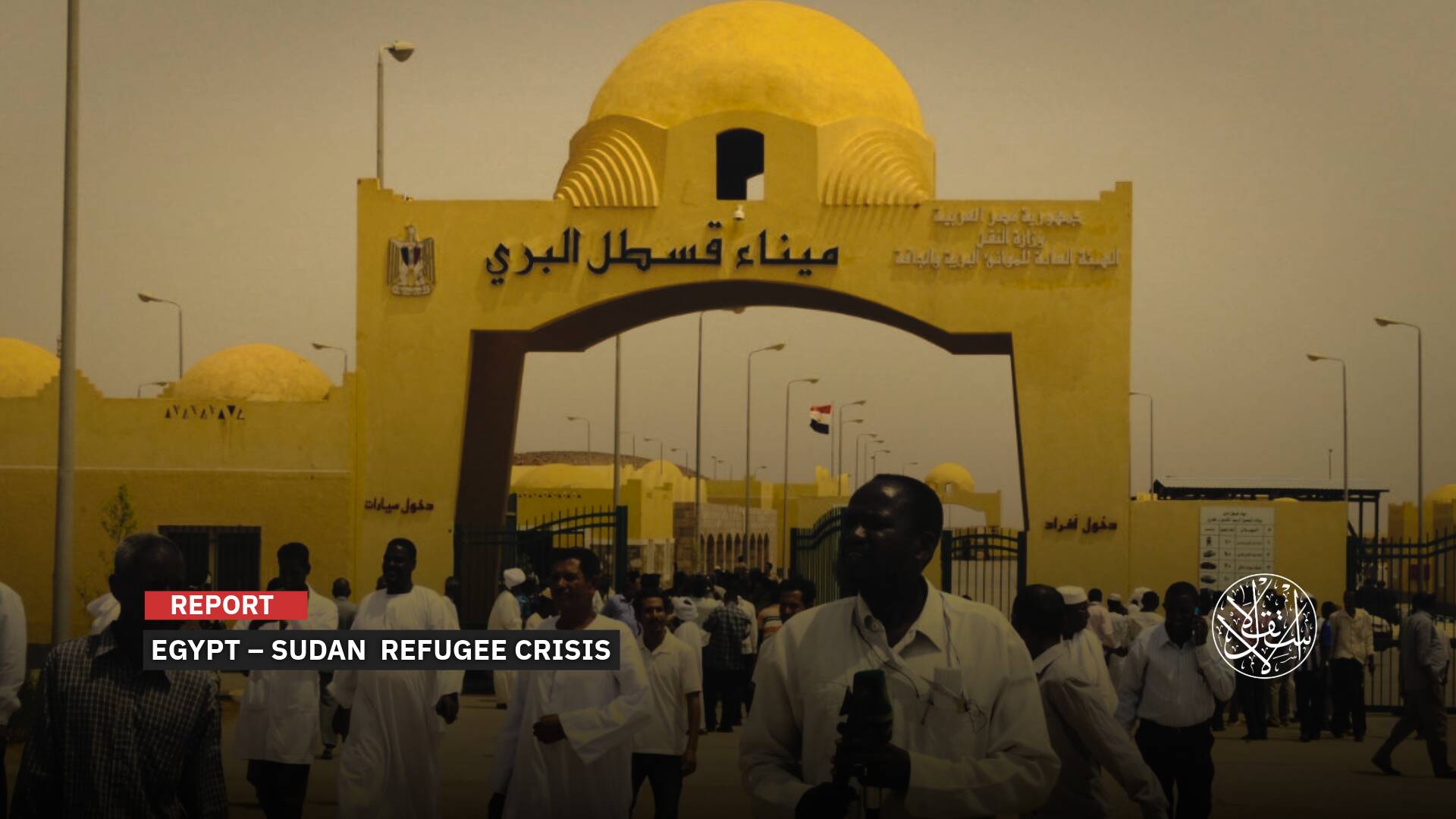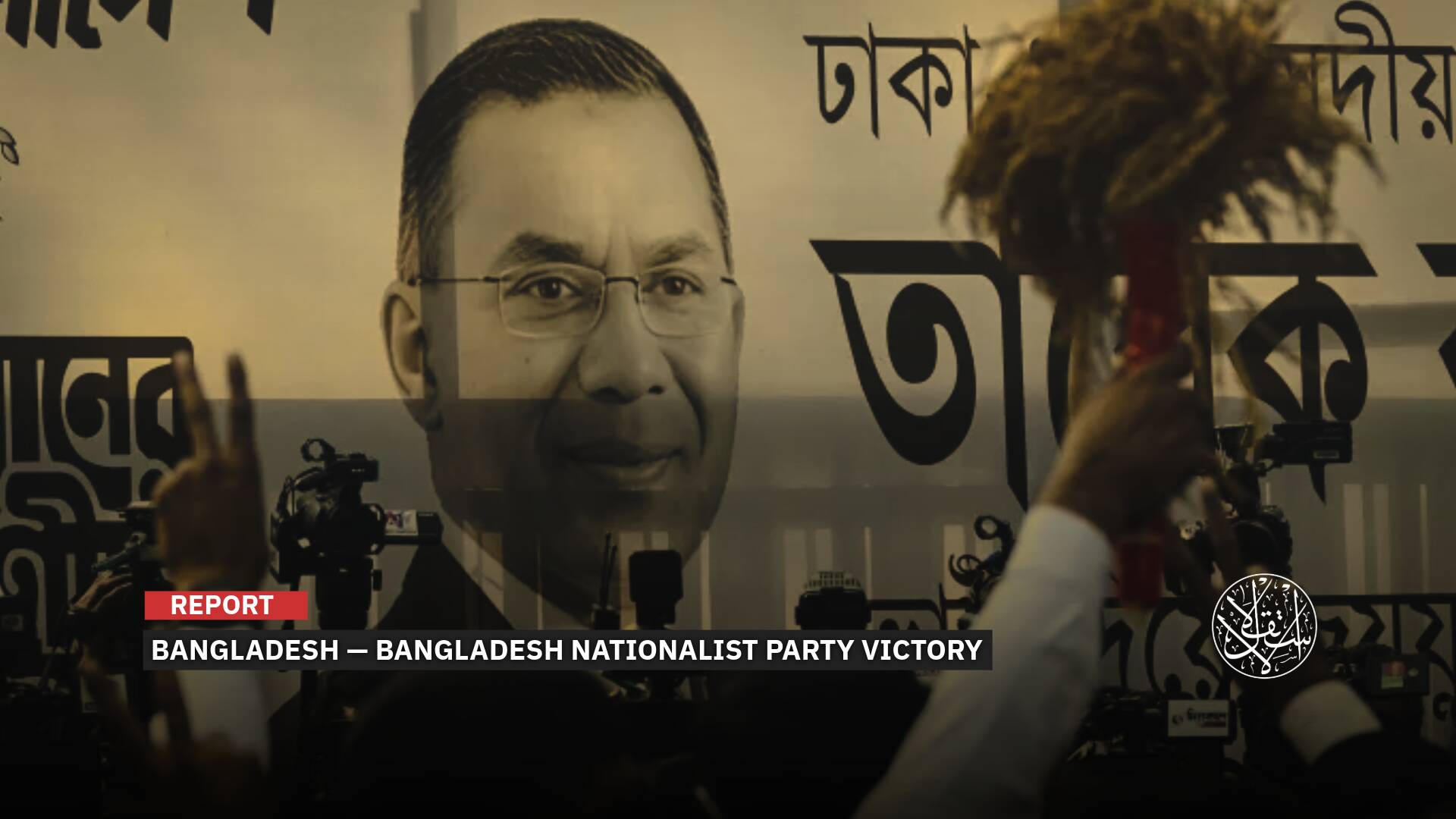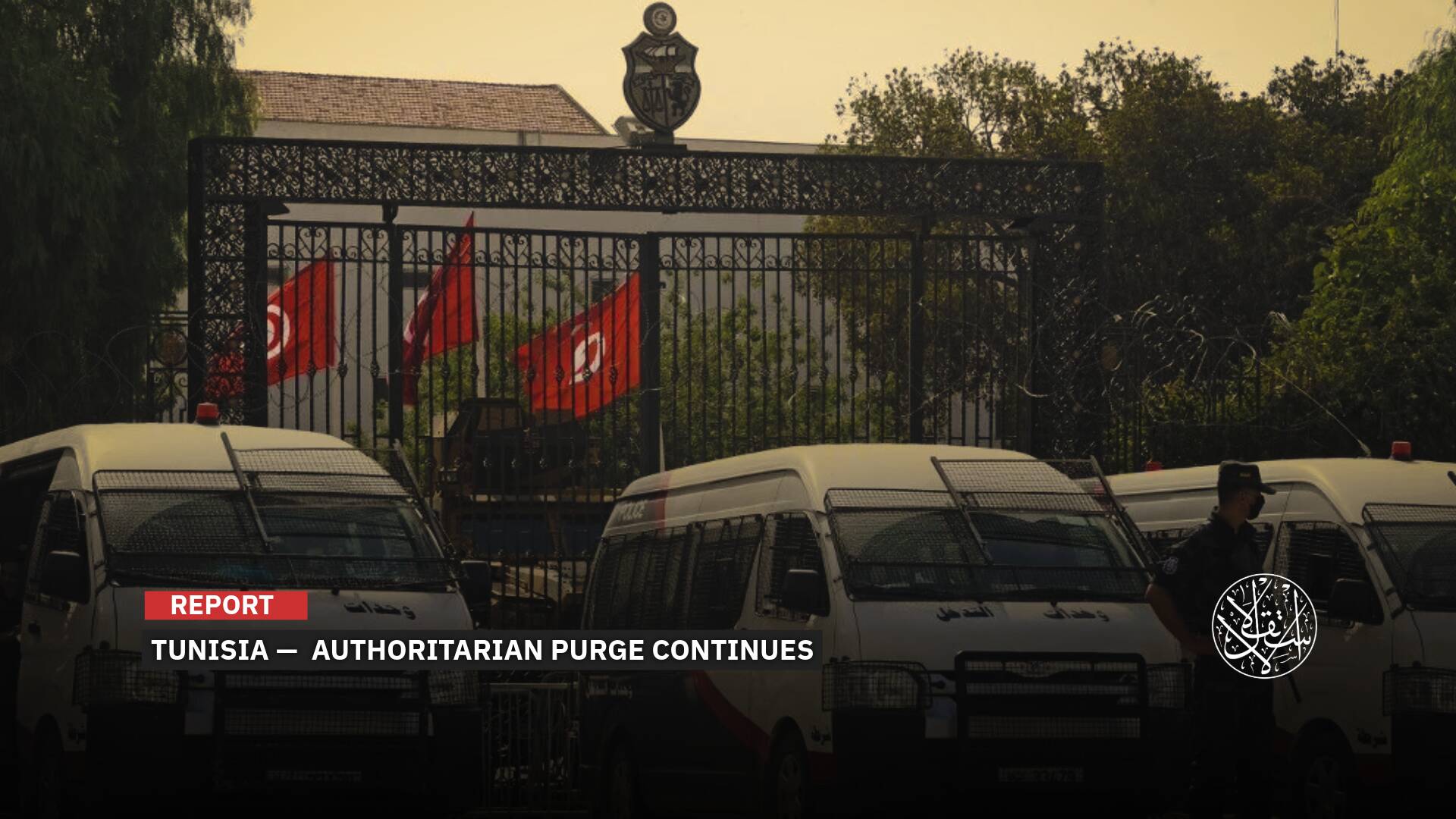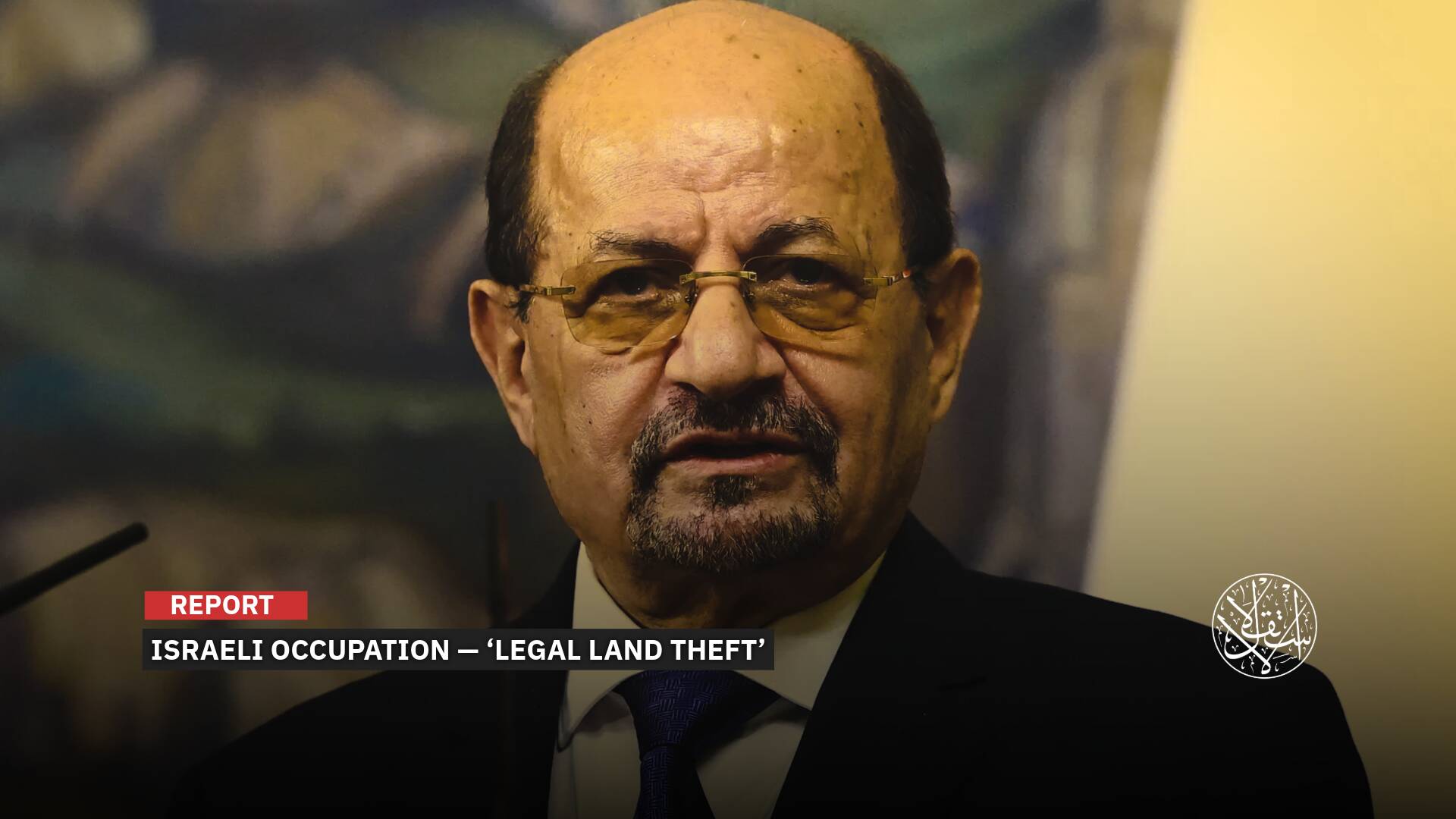Under the Guise of Secularism: How the Quebec Government Suppresses Peaceful Religious Practices
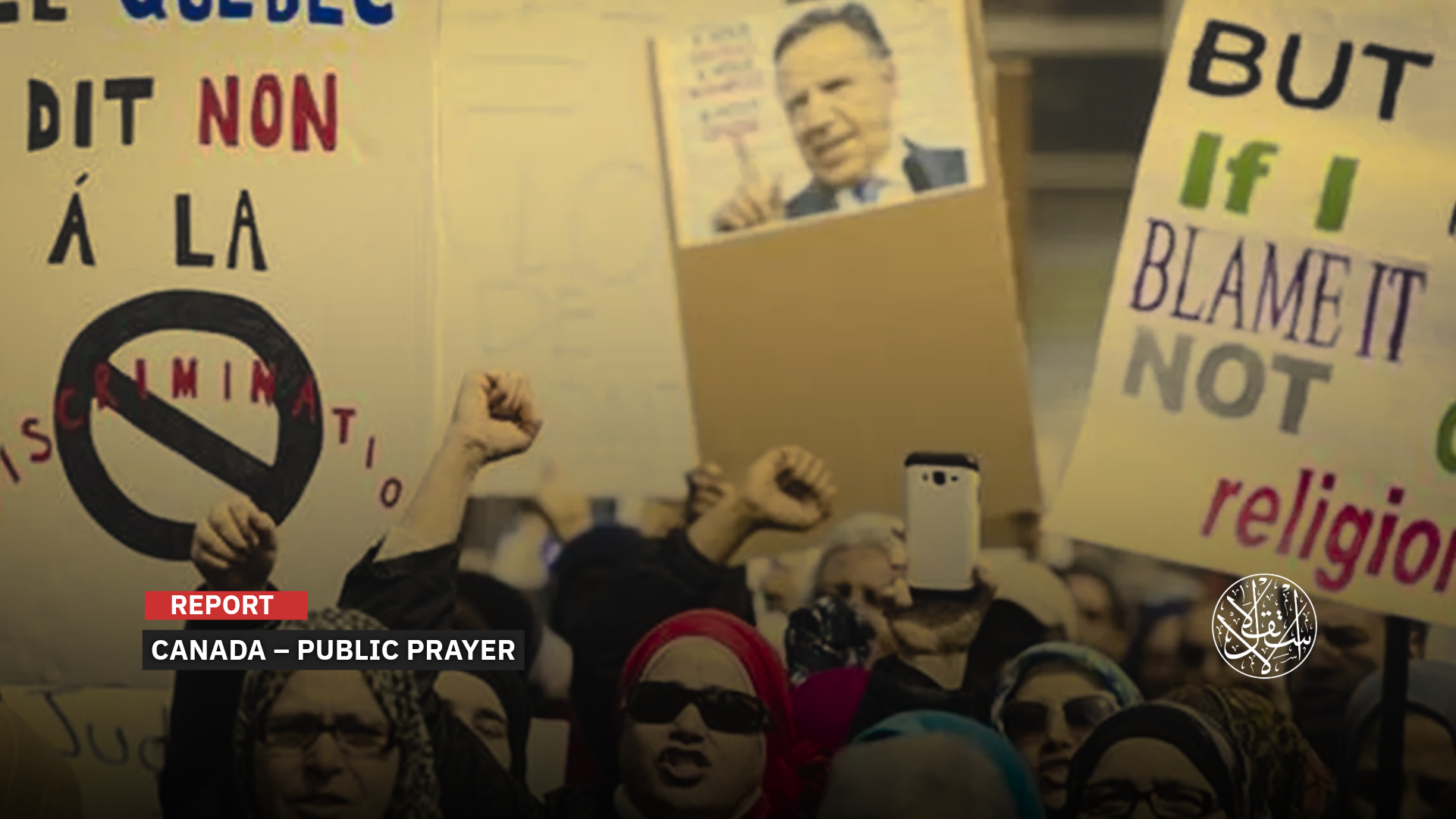
“Images of Muslims praying in Montreal have sparked controversy in recent months.”
The Quebec government intends to ban prayer in public spaces, while human rights organizations warn of a violation of religious freedoms and describe the move as discrimination against minorities.
While Quebec leaders have said the ban aims to maintain religious neutrality in the public sphere, critics have argued it targets peaceful religious practices practiced by citizens in familiar spaces for demonstrations and gatherings.
This move comes amid a local political context fueled by government anger over the increasing number of public prayers in Montreal during demonstrations and public events, most notably pro-Palestinian protests.
Public Prayer
The Quebec government has announced that it will introduce a bill this fall to ban prayer in public spaces, a move viewed as troubling and risking restrictions targeting fundamental freedoms and specific religious communities.
This announcement follows statements by Quebec Premier Francois Legault, in which he expressed his frustration with public prayer in Montreal.
“Seeing people praying in the street or in public parks is something we don’t want in Quebec. When you want to pray, go to a church or a mosque, not a public place,” he said.
Jean-Francois Roberge, Quebec’s Minister Responsible for Secularism, said the move was prompted by the spread of public prayer, which he described as a serious and sensitive issue.
He also noted that the government has expressed its concern about this growing phenomenon since last year, confirming that the ban on public prayer would be one aspect of a bill aimed more broadly at promoting secularism in Quebec.
Roberge's announcement on public prayer also comes just days after an advisory committee recommended the government expand its secularism law, known as Bill 21.
The committee did not, however, recommend the government ban prayer in public, suggesting instead that it leave the issue to individual municipalities.
Nevertheless, Roberge said the committee's report played a role in the decision to present a new bill banning public prayer.
Over the past several years, the ruling Coalition Avenir Quebec (CAQ) party has made separation of church and state a key legislative priority in the province.
Quebec used the notwithstanding clause in 2019 to pass Bill 21, which prohibits certain public officials from wearing religious symbols, and renewed the law last year.
The Supreme Court of Canada is currently considering a constitutional challenge of the law that argues it violates other sections of the Charter.
Although the Quebec government defends the bill as moderate, several groups see it as a restriction on religious freedoms and a violation of fundamental rights.

Deep Division
The Quebec government's recent announcement sparked immediate condemnation, amid calls for further legal and political dialogue before proceeding with legislation that appears set to reignite a long-running debate over the limits of secularism in the province.
A number of Muslim and civil rights organizations have called on the government to rely on local regulatory alternatives rather than a blanket ban on public prayer.
In contrast, political figures, leaders, and groups supported by some sectors of public opinion have expressed support for a strict measure, seeing it as a means of protecting secularism and public order.
This division over the ban on public prayer in Quebec reflects the difficulty of balancing the demand for state neutrality with the rights of individuals to practice their religion, according to observers.
They emphasized that rapid legislative overreach could leave profound legal and social repercussions that are difficult to address later.
In a statement, the Canadian Muslim Forum (CMF) said public prayers are a manifestation of freedom of expression, noting that a blanket ban would stigmatize communities, fuel exclusion, and undermine Quebec’s social cohesion.
“At a time when Quebecers are struggling with a health-care system, SAAQclic fiasco, skyrocketing housing costs and rising living expenses, the CAQ government should be focused on solving real problems, not policing the fundamental rights of its citizens,” the statement said.
The Canadian Civil Liberties Association (CCLA) said banning prayer in public spaces would infringe on freedom of religion, freedom of expression, freedom of peaceful assembly and freedom of association.
“Suppressing peaceful religious expression, individually or communally, under the guise of secularism not only marginalizes faith-based communities but also undermines principles of inclusion, dignity and equality,” said Harini Sivalingam, Director of Equality Program at the Canadian Civil Liberties Association.
“We are deeply concerned by the increasing trend by some governments to misuse the notwithstanding clause to violate fundamental rights and freedoms” said Howard Sapers, Executive Director of the Canadian Civil Liberties Association.
Political Debate
The Legault government's announcement was seen as another attempt by the CAQ to lift its standing in public opinion as the next general election nears and the party polls behind the Parti Quebecois (PQ) and the Quebec Liberal Party (PLQ).
“The move shows that the CAQ government is in trouble,” said former leader of the federal New Democratic Party (NDP) Tom Mulcair.
“Legault understands that a good part of his base is uneasy for all sorts of reasons with the Muslim community,” he added.
“Facing serious difficulties in the polls, the Legault government is desperately trying to regain points in public opinion by exploiting a profitable theme: fear of Muslims,” said former Canadian senator Andre Pratte on X.
“Let’s be clear here: it’s not prayers in public places that are disturbing. No, what’s disturbing is Muslims who pray. In the same way that the ban on religious symbols really only targeted the Muslim hijab.”
But Legault’s party is not alone in considering a ban on public prayer.
PQ Leader Paul St-Pierre Plamondon recently announced he would hold a consultative referendum for members to weigh in on what his party’s position should be.
He called public prayers an appropriation of public space by religious fundamentalists.
Martin Laliberte, president of the assembly of Catholic bishops of Quebec, said a ban on public prayer could disrupt Catholic rituals like the Way of the Cross procession on Good Friday.
He questioned whether it would be illegal for someone to practice yoga in a park, or to pray during a visit by the Pope.
“That’s what it would mean if it were taken to the extreme. We’re heading into a very dangerous area for the government, I think,” he said.
With provincial elections due in 2026, identity and secularism issues are once again dominating Quebec’s political debate.

Reinforcing Secularism
Since October 7, 2023, several pro-Palestinian demonstrations in Montreal have featured large groups of worshippers praying in the street.
The scenes have triggered counter-demonstrations by activists who argue such displays undermine Quebec’s secular values.
Posters circulated this summer declared, “The streets of Montreal are not open-air mosques.”
Quebec Premier Francois Legault has also expressed discomfort with the practice.
“To see people praying in the street, in public parks, this is not something we want in Quebec,” he said last December.
At the time, Legault made no secret of his intention to invoke the notwithstanding clause in the Canadian Constitution to protect the ban from potential constitutional challenges, which sparked considerable concern.
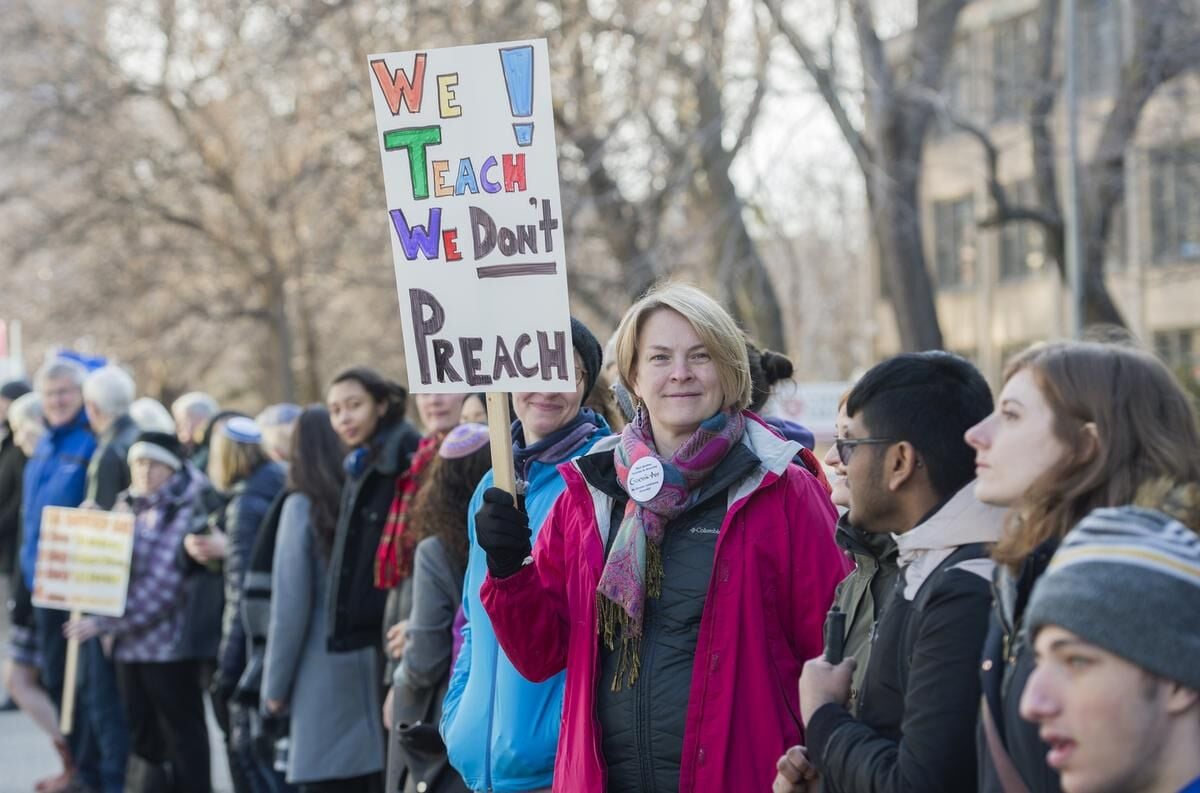
In recent months, an escalation of events has prompted the Quebec government to reconsider its secularism policies.
At an elementary school in Bedford, authorities suspended a group of teachers on charges of influencing the learning environment through religious practices.
At Sainte-Maxime High School, reports of prayer being allowed in classrooms and hallways raised concerns among the government, which viewed these incidents as signs of the need to reinforce the concept of secularism in public institutions.
Following these events, Legault’s government promised to introduce new legislation to promote secularism in schools.
In 2023, Quebec banned prayer rooms and other religious practices from public schools, a move denounced by Muslim and civil liberties groups.
Sources
- Quebec plans to outlaw public prayer in move to strengthen secularism
- Why Quebec wants to ban public prayer and how the government could do it
- Quebec wants to ban prayer in public spaces. Is it legal?
- After religious symbols law, Quebec eyes ban on public prayer: Where the province is headed on secularism


